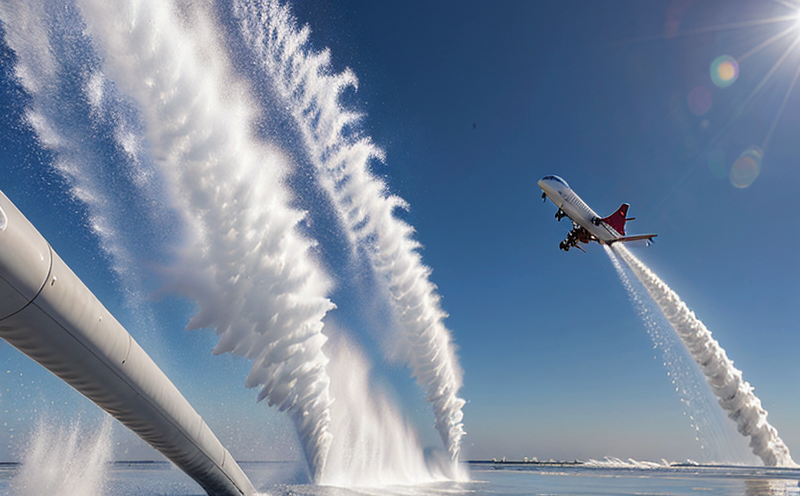Salt spray resistance for coatings used in the aerospace industry
Unlocking the Secrets of Salt Spray Resistance for Aerospace Coatings A Crucial Service Provided by Eurolab
In the high-stakes world of aerospace engineering, coatings play a vital role in protecting aircraft and spacecraft components from the harsh environments they encounter. Among these protective coatings, salt spray resistance is a critical factor that ensures durability and longevity. But what exactly is salt spray resistance, and why is it essential for businesses operating within the aerospace industry? In this comprehensive guide, well delve into the world of salt spray resistance, exploring its advantages, key benefits, and most importantly, how Eurolabs laboratory services can help your business thrive.
What is Salt Spray Resistance for Coatings Used in the Aerospace Industry?
Salt spray resistance refers to a coatings ability to withstand exposure to a controlled environment simulating the effects of saltwater and sea air. This is particularly relevant for aerospace applications where components are often exposed to corrosive substances, extreme temperatures, and fluctuating humidity levels. When coatings are tested for salt spray resistance, theyre subjected to a cycle of wetting and drying, which accelerates corrosion and wear. The coatings performance is then evaluated based on its ability to maintain integrity and prevent damage.
In the aerospace industry, coatings with high salt spray resistance are crucial for ensuring the structural integrity of aircraft and spacecraft components. These include engines, fuel systems, hydraulic lines, and landing gear. When these components fail due to corrosion or wear, it can lead to catastrophic consequences, including loss of life and significant economic losses.
The Importance of Salt Spray Resistance in Aerospace Engineering
Now that weve established the significance of salt spray resistance for coatings used in aerospace applications, lets explore its importance in more detail
Prevents Corrosion Coatings with high salt spray resistance prevent corrosive substances from penetrating the surface and causing damage. This is particularly critical in environments exposed to seawater, de-icing salts, or other corrosive substances.
Ensures Structural Integrity By protecting against corrosion and wear, coatings with high salt spray resistance help maintain the structural integrity of aircraft and spacecraft components.
Enhances Durability Salt spray resistance extends the lifespan of coatings, reducing maintenance costs and downtime associated with component replacement.
Improves Safety By preventing damage to critical systems, salt spray resistant coatings contribute to a safer flying experience for passengers.
Key Benefits of Using Salt Spray Resistance for Coatings in Aerospace Engineering
Here are some of the key benefits associated with using salt spray resistance for coatings in aerospace engineering
Increased Reliability With improved durability and reduced maintenance requirements, aircraft and spacecraft components become more reliable.
Reduced Costs By minimizing downtime and component replacement, businesses operating within the aerospace industry can reduce costs.
Enhanced Performance Salt spray resistant coatings enable aircraft and spacecraft to perform optimally in harsh environments.
Improved Safety Preventing damage to critical systems ensures a safer flying experience for passengers.
QA Common Questions About Salt Spray Resistance for Coatings Used in Aerospace
Weve had many questions from customers regarding salt spray resistance. Here are some of the most frequently asked questions and our responses
What is the difference between salt spray resistance and other types of coatings?
Salt spray resistance specifically refers to a coatings ability to withstand exposure to a controlled environment simulating the effects of saltwater and sea air.
How long does it take to conduct a salt spray test?
The duration of a salt spray test can vary depending on factors such as temperature, humidity levels, and testing cycles. On average, a salt spray test can last anywhere from a few days to several weeks.
Can any coating be used for salt spray resistance applications in aerospace engineering?
No, not all coatings are suitable for aerospace applications. Coatings must meet specific industry standards and regulations.
Conclusion
In conclusion, salt spray resistance is a critical factor in ensuring the durability and longevity of coatings used in the aerospace industry. Eurolabs laboratory services can help your business ensure that its coatings meet the stringent requirements of the aerospace industry. With our expertise and state-of-the-art facilities, we can conduct comprehensive salt spray tests to evaluate the performance of your coatings.
By choosing Eurolab for your salt spray resistance needs, youll be able to
Increase Reliability By ensuring coatings meet industry standards.
Reduce Costs Minimize downtime and component replacement costs by selecting the right coating.
Enhance Performance With improved durability, reliability, and safety.
Dont let corrosion or wear compromise your aircraft or spacecraft components. Trust Eurolab to provide you with expert guidance and top-notch laboratory services for all your salt spray resistance needs.




